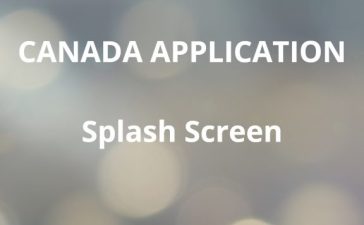Hey all !!!
I hope many of you are trying to apply at abroad for higher studies & you are having basic understanding why you will need to have good IELTS score.
Lets understand, IELTS examination is an essential in your checklist if you are planning to apply abroad for higher studies or for work. These test scores play an integral role in earning scholarships or to the very least satisfying the eligibility criteria of some of the course you might want to take. Your proficiency in the basics of English Language in terms of Listening, Reading, Writing and Speaking is put to a test.
Often preparing for these exams might consume a lot of your time and formal coaching may cost a fortune. This article talks about a few hot tips of how you can get your desired band without exhausting your time and money in coaching.
Starting off by dissecting the individual sections:
Listening
You’ll have to answer 40 questions over the course of four videos. The recording will only be played once. Completion of sentences, completion of description, form completion, and multiple choice questions are all common types of questions you can expect.
For test takers don’t you worry; this part is the easiest. Just do the Cambridge practice tests over and over again and train your brain to move on and not get stuck up on one question in case you miss an answer.
Sometimes you won’t directly find the answers in the audio clip and would have to make an effort to infer or decode rephrased sentences. It is advised you don’t hear to find the keywords but on the contrary comprehend the bigger picture.
In the long run it is important to keep listening to the news or even watch English movies without subtitles, but trust me you will get through this section with flying colors.
Reading
Many of the test takers fail to manage their time during this section, had personally felt the time crunch as well.
One strategy here is to read the questions first so that your brain is prepared to extract the answers subconsciously while you scan through the text.
In order to perform well in this section it is a must to practice all the previous year practice sets multiple times and make it a habit to read lengthy articles(newspaper/blogs/medium) daily.
Sometimes you are tricked, a question which demands a lot of time/decoding of the text is put first and so in these cases leave the question if you can’t find the answer to it and return to it later.
TRUE/FALSE/NOT GIVEN are often a pain and as contrary as it sounds are the toughest . Try to master this type.
Writing
The first very basic thing to keep in mind in the writing section is that the formats are different from those that we are taught in our Indian boards and so the key is to understand their writing style and get acquainted to it. Reading multiple sample answers and practicing writing them is a must.
For this part of the exam, try watching videos on YouTube. In Tasks 1 and 2, try catching the pattern. You might want to reach out to someone to correct your answers. However another alternative would be; referring to the points of the marking scheme, writing the same answer multiple times and comparing it to the sample.
Make sure you don’t write off-topic! Otherwise that is an losing factor right there. Especially in Task 2, be straightforward and clear. Keep to the word count of 150 (Task 1) and 250 (Task 2). Use a wide range of sentences, synonyms, and connectives.
Speaking
Imagine it as an normal conversation and speak with confidence. Do not rush to give answers and understand the question wholly.
In case you do not understand your task, you are allowed to ask the examiner to explain it to you and be sure to do so in that case.
Practice just a minute talk with a friend or in front of a mirror. This won’t be explicitly told anywhere however your flow of thought is very important factors in the marking so do take a minute to organize your points sequentially before you begin talking.
Lastly as reiterated multiple times do practice the practice sets and previous year papers. You will be offered a practice set book by the exam conducting institution upon test enrollment. Keep building on your skills with the little things you can do every day. Following some of the suggestions you can prepare for the exam on your own terms without formal coaching however if you do feel the need for guidance and disciplined teaching plan don’t hesitate.
Geetanjali Purohit – 19162121008 – BDA
[Image Source: https://www.gyandhan.com/blogs/mechanics-of-the-ielts-exam]




